Politics
Human Rights Crisis: EU Rebukes Israeli Proposal to Starve Gaza Civilians

In a rebuke highlighting the European Union’s dedication to humanitarian values and international law the EU High Representative expressed serious concern about the controversial comments made by Israeli Finance Minister, Bezalel Smotrich at the Katif Annual Conference. Minister Smotrich’s remarks suggesting it could be morally justifiable to let two million Gaza civilians go hungry until hostages are released have drawn criticism from the EU for potentially crossing ethical boundaries set by international humanitarian laws.
The EU’s strong denouncement underscores its unwavering opposition to war crimes the intentional starvation of civilians viewed as a blatant violation of human rights and dignity. Minister Smotrichs statement was labeled as “shameful”. Seen as indicative of a broader disregard for international agreements governing conflicts. By endorsing harsh deprivation as a means of political leverage, Smotrich has brought increased global attention to Israels policy choices regarding Gaza.
In a statement, the EU urged the Israeli government to distance itself from Minister Smotrich’s comments and demanded transparency on allegations of torture at Israels Sde Teiman prison. These requests form part of the EU’s plea for Israel to comply with UN Security Council resolutions and follow directives, from the International Court of Justice.
The situation for civilians in Gaza is incredibly severe. The EU is once again urging Israel to allow unrestricted humanitarian assistance. This request underscores the need to provide food, medical help and essential supplies to numerous individuals, including children, who are facing conditions similar to famine and disease.
Additionally, the EU has restated its appeal for a ceasefire. It has stressed the importance of ending hostilities not for freeing all hostages unconditionally, but also for significantly boosting humanitarian aid to Gaza. The EU’s unwavering support for peace and aid demonstrates a concern for the welfare of civilians caught in the ongoing conflict.
This development poses a test for Israels leadership as they navigate internal and external pressures amid renewed calls for peace and humanitarian support in one of the world’s longest standing conflicts. With global scrutiny mounting, the EU’s strong stance reaffirms its role, as a protector of human rights and champion of international law.
Save as PDF
Politics
Joe Biden Exits 2024 Presidential Race, Shaking Up U.S. Political Landscape
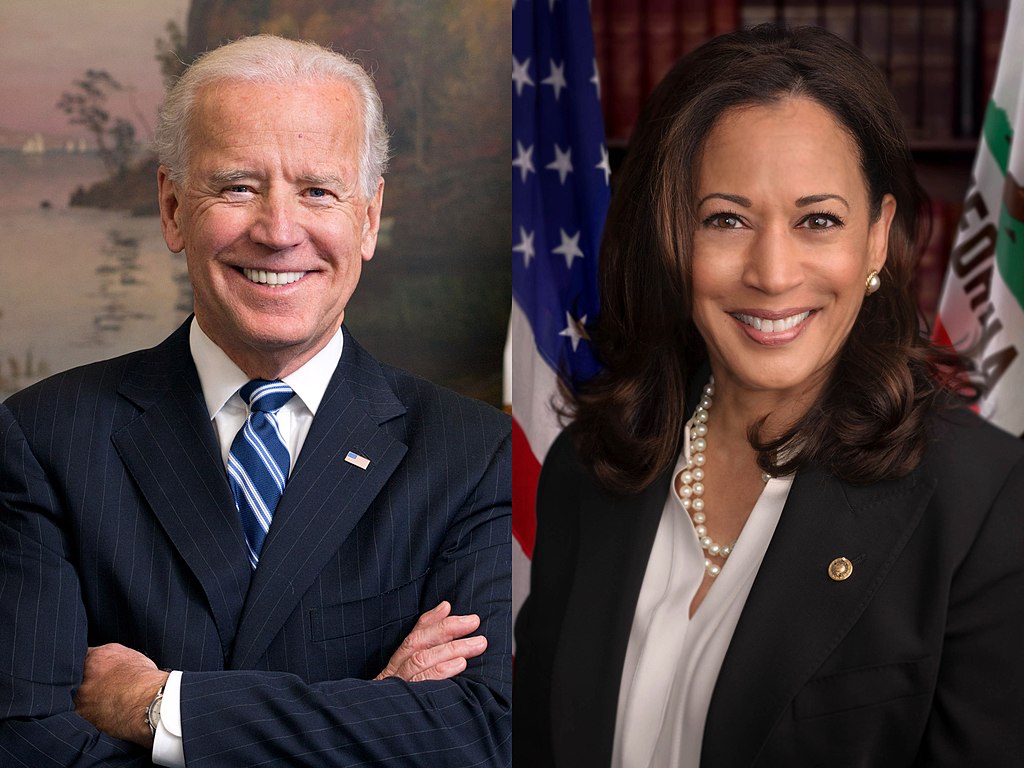
In a turn of events in American politics, President Joe Biden has announced that he will not seek re-election in 2024. His announcement, shared on the media this Sunday afternoon, gives Donald Trump a significant edge in the upcoming presidential race.
Concerns about Biden’s ability to lead another campaign at the age of 81 came to a head after a televised debate with Trump on June 27 during which Biden displayed signs of cognitive fatigue. Following this, prominent Democrats, including former President Barack Obama, openly called for Biden to step aside.
In a message posted online, Biden stated:
“Serving as your president has been the greatest honor of my life. And while it has been my intention to run for re-election, I believe that the best course of action for my party and the country is for me to step aside and focus solely on fulfilling my duties as President for the remainder of my term.”
Biden’s choice was also influenced by recent public blunders during events and appearances, such as at the NATO summit marking its 75th anniversary where he mistakenly referred to Ukrainian President Volodymyr Zelenskyy as “President Putin” and his own Vice President Kamala Harris, as “Vice President Trump.”
The pressure reached its peak when a notable opinion piece by George Clooney, a supporter of the Democratic Party was published in the ‘New York Times’ suggesting that Biden might face challenges in his race against time.
The situation became more complex when Biden tested positive for COVID-19, leading to his recovery at his home in Delaware. Despite plans by the Democratic Party to secure his nomination through a virtual vote before the Chicago convention, Biden eventually decided to step back.
Biden’s withdrawal has triggered discussions about who will succeed him. Vice President Kamala Harris appears to be a contender and could potentially make history as the first female President of the United States. Nonetheless, other notable Democrats like California Governor Gavin Newsom and Michigan Governor Gretchen Whitmer have also emerged as candidates.
This turn of events marks a moment in American politics as the Democratic Party faces uncertainty just months before the 2024 elections. The repercussions of this withdrawal could have far-reaching effects, on both the domestic political landscape and global power dynamics.
Politics
EU Calls for Renewed Commitment to a Unified Cyprus Amid 50th Anniversary of 1974 Division
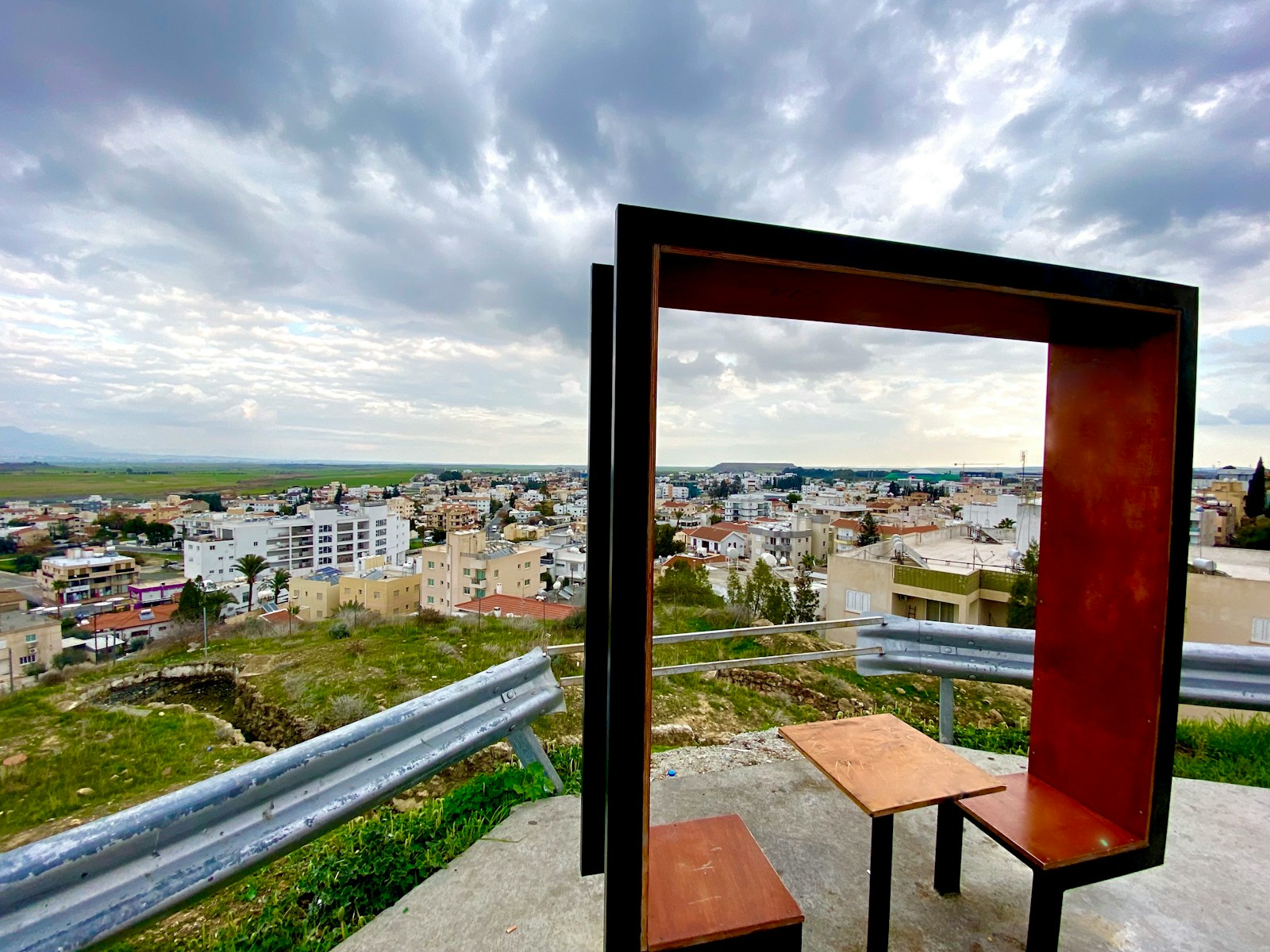
This week marks the solemn commemoration of the tragic events of 1974, a pivotal moment in Cyprus’s history that continues to reverberate half a century later. The European External Action Service (EEAS) has issued a poignant statement, underscoring the enduring need for a fair, comprehensive, and viable settlement to the Cyprus problem.
The Republic of Cyprus, an EU Member State, remains divided to this day—a division that has profound implications for its people. The EEAS emphasizes that this forced separation cannot be a lasting solution and that the hope for a unified Cyprus persists.
The statement calls for a renewed and genuine commitment from all parties involved in the United Nations-led efforts to resolve the Cyprus issue. This includes the two Cypriot communities and, notably, Türkiye. The EEAS stresses that a peaceful settlement must be based on the relevant UN Security Council resolutions, which provide a framework for negotiations.
In light of the broad geopolitical shifts and ongoing crises, the EEAS highlights the importance of collective effort to achieve a settlement. The goal is not only to benefit the people of Cyprus but also to ensure stability and security in the Eastern Mediterranean region.
The statement serves as a reminder of the urgency of the situation and the necessity for all stakeholders to engage constructively in the peace process. As the world commemorates the events of 1974, the call for unity and resolution is more pressing than ever.
The EEAS’s message is clear: too much time has been lost, and the time for action is now. The path to a unified Cyprus requires unwavering dedication and cooperation, promising a better future for all Cypriots and contributing to regional stability.
Politics
Statement by President von der Leyen at the joint press conference with President Metsola following the European Parliament Plenary vote
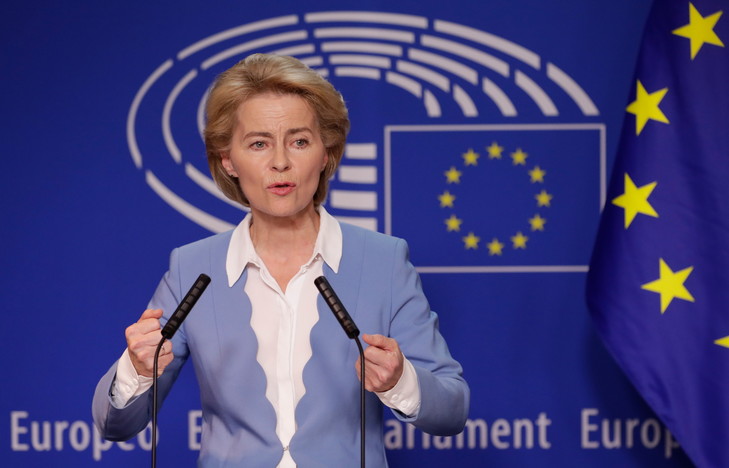
On the eve of a critical European summit, European Commission President Ursula von der Leyen delivered a pivotal speech addressing the continent’s pressing challenges and future direction. Speaking to an audience of policymakers, diplomats, and industry leaders, von der Leyen laid out the European Union’s strategic priorities, ranging from economic recovery post-pandemic to the urgent need for a unified stance on climate change and digital transformation. Her remarks, coming at a time of significant geopolitical upheaval, underscore the EU’s commitment to solidarity, innovation, and resilience in an increasingly complex global landscape.
Here it is:
Thank you very much, dear Roberta,
Good afternoon to everyone,
I guess you have heard my speech, and you might have read the Political Guidelines. So you can imagine that this is a very emotional and special moment for me now. I just want to make three very short remarks before moving on to your questions.
The first one is a more personal remark. I cannot begin without expressing how grateful I am for the trust and the confidence of the majority of the European Parliament. 401 votes in favour – you will recall that last time, it was 8 votes above the necessary majority. This time it is 41, so this is much better. This sends a strong message of confidence. I think it is also recognition for the hard work that we carried out together in the last five years in the last mandate. We have spared no effort. We have navigated the most troubled waters that our Union has ever faced. And we have kept the course on our long-term European goals. I also want to thank you, Roberta, the Group leaders of the democratic forces in the Parliament and all the MEPs for the excellent cooperation including during the last mandate but also for the very substantial exchanges we have had over the past two weeks – after the elections and over the past two weeks. I think this is a very good foundation for the next five years. And I think this was tangible in the debate today.
Second, I want to highlight that I was very happy to have the opportunity to carry out a real, pan-European electoral campaign. As you know, it brought me from Helsinki to Lisbon, from Bucharest to Rome and many different places. I engaged with people from all walks of life. And I enjoyed taking part in the series of TV debates that we had with the other candidates. I think this makes our European democracy much more vibrant.
And finally, let me walk you briefly through the next steps. I will now focus on building my team of Commissioners for the next five years. In the coming weeks, I will ask Leaders to put forward their candidates. I will – as I did last time – write a letter and ask for the proposal of a man and a woman as candidate. The only exception is, like last time, when there is an incumbent Commissioner who stays. And then, I will interview the candidates as of mid-August, and I want to pick the best-prepared candidates who share the European commitment. Once again, I will aim for an equal share of men and women at the College table. The new team will get ready to successfully pass the Parliament hearings. And then I will again seek the confirmation of this House.
Thank you very much.
-

 Sports7 days ago
Sports7 days agoBari still knocked out and last, Modena gets unblocked
-

 Health & Society5 days ago
Health & Society5 days agoThe intoxicated society
-

 Sports7 days ago
Sports7 days agoMax Verstappen worried, Lewis Hamilton laughs it off
-
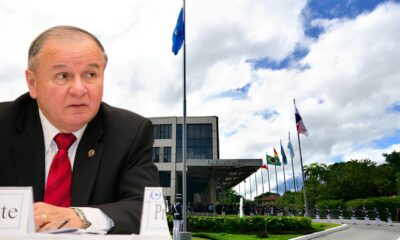
 Politics6 days ago
Politics6 days agoElias Castillo: A Stalwart of Latin American Legislative Leadership
-

 Sports6 days ago
Sports6 days agoInter on autopilot, everything easy with Lecce
-

 Health & Society7 days ago
Health & Society7 days agoReligious fundamentalism as psychosis
-

 Politics6 days ago
Politics6 days agoOAS Report Shakes Venezuelan Election Results: Trust in Democracy Eroded
-
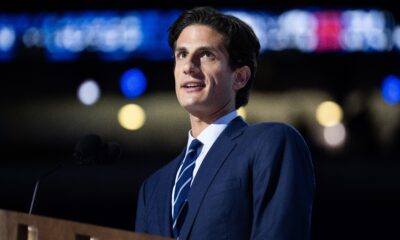
 EU & the World7 days ago
EU & the World7 days agoJack Schlossberg Reacts to Cousin RFK Jr. Ending Campaign and Endorsing Trump









